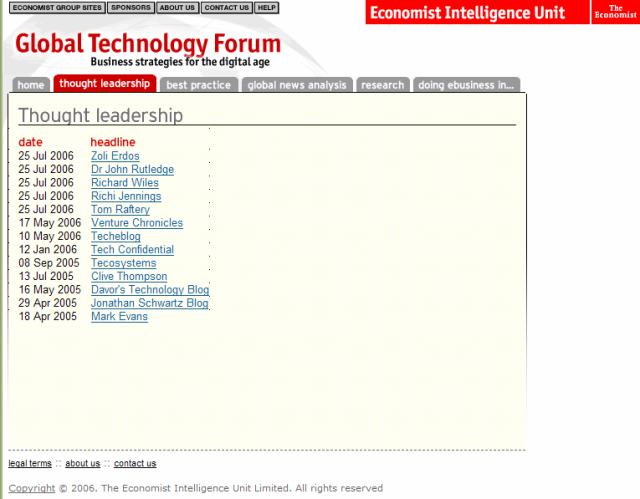Mike Arrington’s TechCrunch Parties have become “THE EVENTS TO ATTEND” in the Valley – in fact not just in the Valley: last time around I remember participants driving up all the way from San Diego, and this time people will fly in just to be there. The last party as well as the next one this Friday both sold out within hours after the announcement, and a lot of readers felt frustrated:
- Some felt that first-come-first-served is not fair enough with such a short notice (an hour or so)
- Some publicly asked for special consideration to get in
- Some proposed to pay for “tickets”
- Just about everyone complained for the lockups in the registration wiki.
I don’t envy Mike in this situation. It’s his party, his house (well, at least for the previous events), it would be perfectly OK for him to have an invitation-only party. Yet he obviously wants to see new faces, so he opens it up to anyone, but then of course he can’t please all… This time around, for the seventh TechCrunch Party hosted by August Capital there was more than the usual rush: the registration wiki has become constantly locked up and Mike was forced to move RSVPs to comments on his blog, closing the wiki.
Mike received ample feedback on why the wiki was not the right platform to handle hundreds of almost simultaneous registrations, and several entrepreneurs seized the opportunity to announce new offerings. Central Desktop announced a free public event wiki, and since it’s a hybrid not-just-a-wiki solution, Founder and CEO Isaac Garcia claims they do not have lockup issues (they use a form with a database in the background). Zoho Creator would have been another elegant solution.
However, what almost no-one talks about is that this was not simply a technical glitch. Having been lucky enough (?) to wake up 4am the day the wiki opened I managed to register myself at exactly position #100 in the wiki, then observe the wiki-war that soon ensued. The major “sins” I witnessed were:
- Individual users registering entire blocks (dozen or more) names
- The same users sitting on the wiki (blocking), probably while coordinating with their buddies who else to sign up
- Previously registered names getting deleted
One can perhaps justify registering others, although I don’t know where the reasonable limit is ( I only signed up myself), but deleting others is the absolute cardinal sin. Apparently fair play is a strange concept to some.
This raises another issue though: are these people not aware that wikis provide a perfect audit trail and what they did can easily become public? Or do they simply not care? Is getting in on the TechCrunch party worth being displayed on a virtual “hall of shame”?
This particular incident aside, I think the major learning here is the overall lack of awareness of a typical wiki’s capabilities and how to “behave” while using it. I know many who’d like the collaborative capabilities but are afraid of “chaos” and the potential lack of civility… in short a major ‘wiki war’ if they open up editing to anyone. Most wiki platforms offer technical controls to limit chaos: even consumer /community focused WetPaint introduced several security schemes in their latest updates, and enterprise wikis like Socialtext and Atlassian’s Confluence have for long had elaborate security schemes – heck, that’s why they are “enterprise”.
Just as important as the permissioning is the role of social- behavioral norms, which clearly are more common and more forceful in a corporate environment, where all wiki “contributors” work for the same company. “Ross Mayfield said that in four years of building wikis for corporations Socialtext has seen precisely 0 trolls and 0 instances of vandalism.” He also maintains a Best Practices wiki (hey, it’s the new skin!). Now, remember, it’s a wiki – you can contribute, not just read.
As for the TechCrunch Party, the guest list is currently at 738(!) and here’s a preview of who’s coming, courtesy of CustomCD.us. (who may have intended to keep this a surprise, but I found it anyway….)
Update (7/28/2007): Here’s another case of wiki “who done it”.


 (Updated – see podcast links at the bottom)
(Updated – see podcast links at the bottom)

Recent Comments